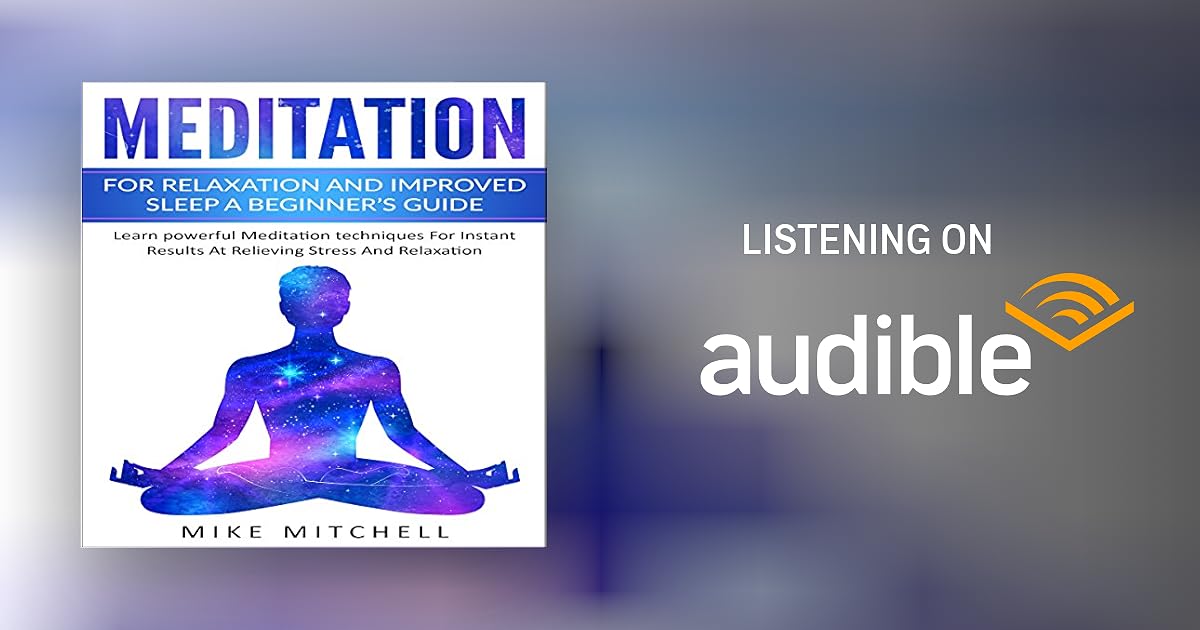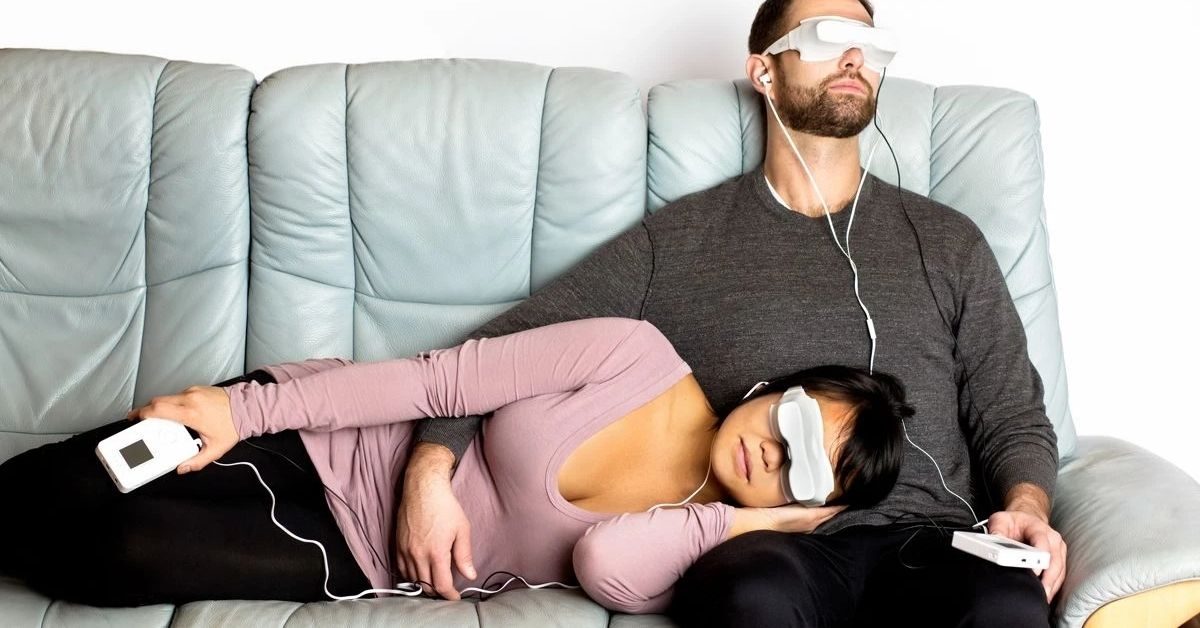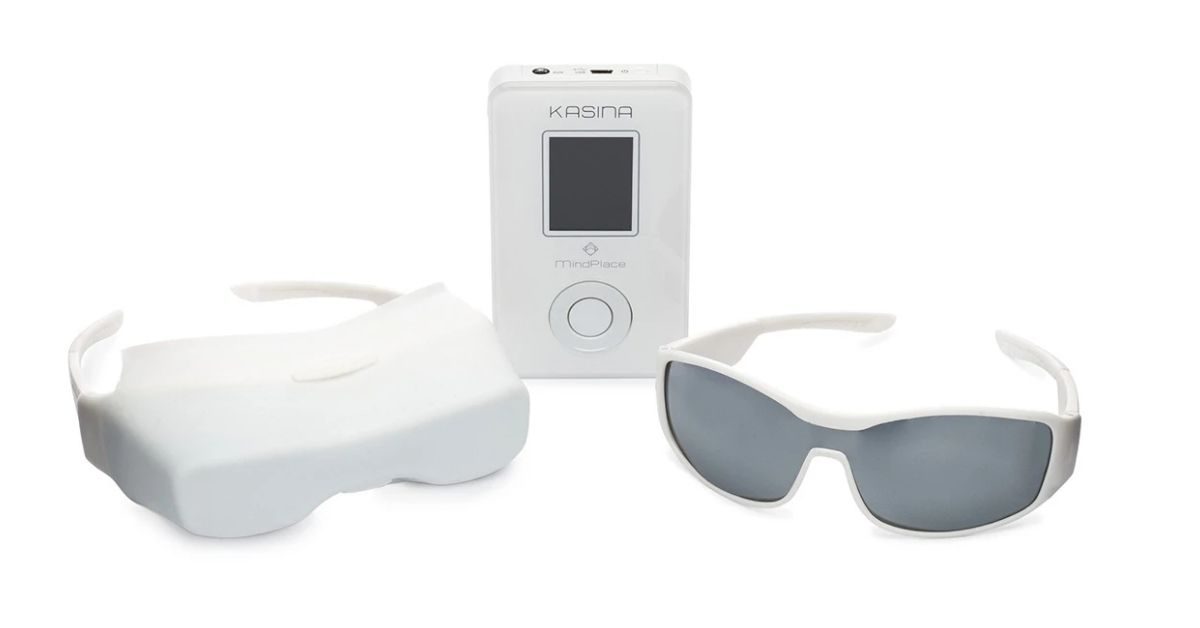According to the National Sleep Foundation, clinical insomnia affects more than a third of adults.
And that’s not the only sleep problem plaguing the population.
Conditions such as sleep apnea, sleep onset latency, circadian rhythm disorder, and more keep the world from getting a good night of rest.
Luckily, meditation can help.
Learning how to meditate for better sleep can help ease a lot of the issues around sleep, helping you to relax and destress in the evenings so you can get better quality sleep at night.
Read on to learn how meditation helps sleep disorders and how to meditate for better sleep.
(Note. While we earn commission from the links in this article, we only recommend the products we truly believe will improve your sleep the most. These commissions come at no extra expense to you and help us to keep providing you with expert sleep information for free.)
How Does Meditation Work?

Meditation practice helps to calm the mind and body, relaxing you and reducing stress and anxiety.
Meditation combines mindfulness with a deep breathing exercise that helps to reduce the stress hormones in your body.
Cortisol, the major stress hormone, is released to alert the body to danger. This causes anxiety, which can make it tough to sleep.
Meditation reduces the levels of cortisol in the body, calming you down and relieving anxiety.
Previous studies also show that meditation can have physical effects on the hippocampus, the part of the brain responsible for memory, self-awareness, and empathy.
Not only does meditation help to improve memory, but it also helps you to be more self-aware and empathetic toward yourself, creating further feelings of calmness in the mind and body.
How Does Meditation Help Sleep?
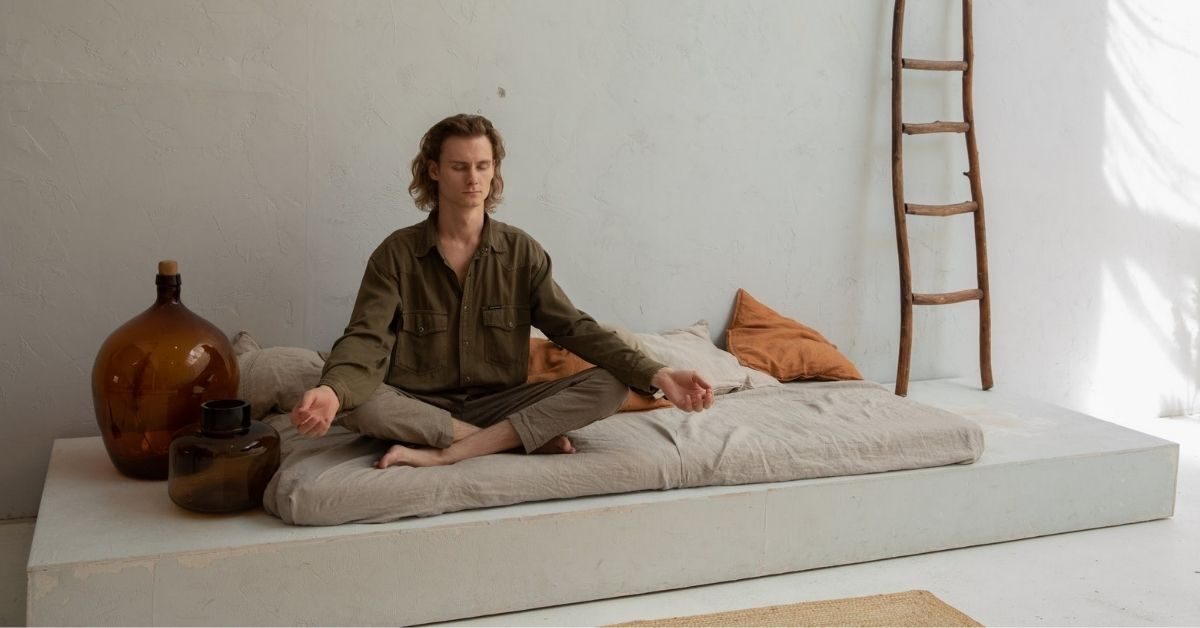
The benefits of meditation are abundant.
As a mind-calming practice, meditation is an extremely helpful sleep aid that has powerful effects on sleep.
Many studies argue that mindful awareness practice works as a holistic medicine to help improve sleep quality, relieving the symptoms of many sleep disorders.
Firstly, sleep meditation helps to reduce the stress that makes it hard to fall asleep at night. Many insomnia symptoms are related to daily stressors that cause anxiety and tension when you’re trying to drift off. Meditation can help relax you to help insomnia symptoms.
Not only that, but meditation can help to reduce sleep disturbances during the night, helping you to get more hours of sleep.
On top of that, sleep meditation helps you get better quality sleep. Studies show improved sleep in those who practice meditation before bed, reducing sleep-related daytime impairment the next day.
Since meditation leads to such a drastic improvement in sleep, it’s wise to include some form of mindfulness practice before you go to bed. Try adding meditation into your bedtime routine in preparation for sleep.
Cultivating good sleep habits will not only lead to more healthy sleep, but it will also help you to wake up feeling refreshed and energized for the next day.
If you need help getting started with meditation, why not take a class? Joybija’s meditation courses are ideal for beginners, with a free starter course available to everyone.
The Types of Meditations That Work Best for Sleep
Adults with sleep problems should try sleep meditation when they head to bed at night as a way to improve quality of sleep.
There are a few different types of meditations to help you get a more restful sleep. Here are some of the most effective.
1. Mindfulness meditation
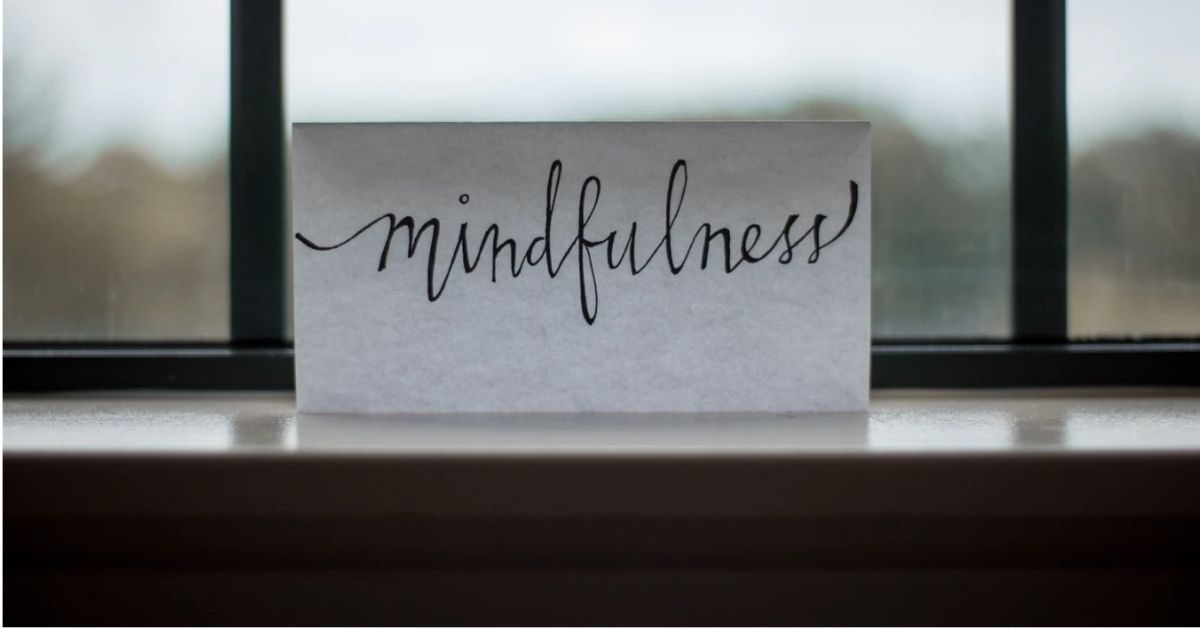
Mindfulness meditation is one of the most common forms of meditation used to help remedy sleep issues. It is a particularly popular meditation for insomnia, with lots of people practicing this technique in the minutes before bed.
As a sleep meditation technique, mindfulness meditation is fairly simple to incorporate into your daily practice. You sit or lay in a comfortable position and begin deep breathing, paying attention to the breath coming in and going out.
The idea of mindfulness meditation is that you focus your attention on the thoughts that flow through your brain, without grasping on to any of them. You may notice the sounds, smells, and sensations around you, but don’t hold on to them. Just notice them and let them go with each exhale.
One of the major reasons that a mindful awareness practice is so helpful for sleep issues is due to the mindfulness-based sleep reduction that comes with the practice.
As Jeanne Mahon, director of the wellness center, explains,
“We were tasked to find ways for the community to cope with stress. And at the same time, so much research was coming out on the benefits of mindfulness and meditation. We keep offering mindfulness and meditation because of the feedback. People appreciate having the chance for self-reflection and learning about new ways to be in relationships with themselves.”
2. Concentration meditation

Concentration meditation is another popular way to address poor sleep and chronic insomnia.
In concentration meditation programs, you’re taught to focus the mind on a particular visual image, such as a peaceful scene of a landscape, ocean waves, or a dancing flame. This may also be accompanied by a chant or humming sound.
One of the most simple meditations to bring to your daily life, concentration meditation teaches you to let go of everything in the mind, except the image you’re picturing. This helps to bring calm and balance while inciting mental clarity.
By combining deep breathing and calming imagery, you slow down the heart rate and relax the body, leading to improvements in sleep latency.
3. Body scan meditation
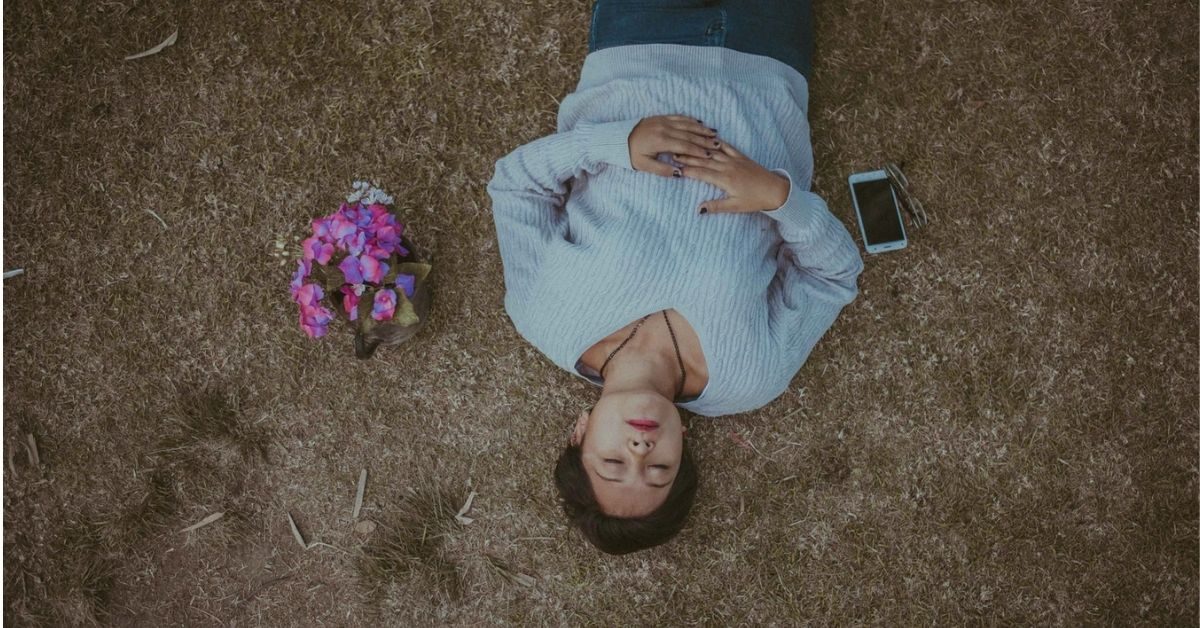
Body scan meditation programs are a relatively quick and very simple way to relieve the issues around sleep.
Peer-reviewed studies show that daily practice of body scan techniques can help you sleep more hours per night while reducing the prevalence of sleep problems and leading to improvements in sleep quality.
All you do is sit or lay in a comfortable position and take deep breaths. Start by focusing on relaxing your feet and ankles. Once these muscle groups are relaxed, move on to focus on relaxing your calf muscles, then your thighs, then your buttocks. Move up your body, relaxing each muscle group until you get all the way to your head.
You’ll now be fully relaxed and ready to drift off into healthy sleep.
4. Guided meditation

If you can’t bear to make it through another sleepless night, tackle your insomnia with a guided meditation.
Using techniques from the three meditation programs above, guided meditation is a popular meditation for sleep that uses a voice to guide you through a visualization.
The recorded voice will invite you to relax into the sleep practice, guiding you on how to breathe and what to picture. This makes it easier to get into a state of relaxation without having to rely on yourself not to get distracted.
How to Meditate for Better Sleep: 5 Top Tips
Not only can meditation reduce insomnia and prevent daytime fatigue, mind-body interventions can also lead to better health and improved quality of life. Great for both your mental health and your physical health, meditation is a positive practice to introduce to your daily life.
If you’re struggling to get started, follow these top tips to help you get into the right frame of mind.
1. Find a quiet area

To meditate properly, you must draw inward and focus only on yourself. Any outside noises or distractions will only serve to pull your focus outward and lead to an unsuccessful meditation.
Try going into your room, bathroom, or just an area where you won’t be disturbed for a while.
If you have kids, try arranging for your partner to look after them so you can have some time alone.
Draw the curtains, shut the windows, and block out any sounds that may disturb you. If you’re really struggling, you can wear earplugs or Sleepphones. Alternatively, put on some calming music to drown out outside noise.
2. Let go and relax
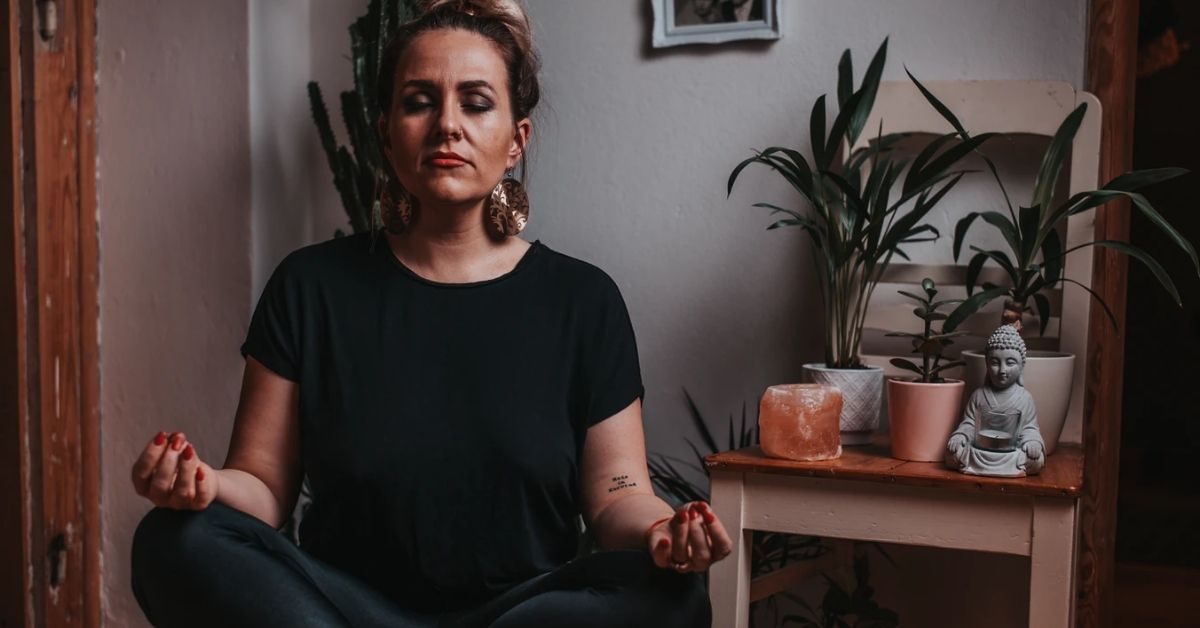
This step is crucial to all forms of meditation. The point of this exercise is to put you in a relaxed state. You can’t be relaxed if you are focusing on your anxieties or if you are thinking about your to-do list or even just running through a project in your head.
While it’s normal for your mind to wander, you need to prepare yourself to bring your focus back. If you’re too busy worrying about work and life’s stresses, you won’t be able to sink into a state of relaxation.
Guided meditations can help here as they give you something concrete to focus on.
3. Meditate at least once a day
To get the full benefits of meditation, meditate every day.
At first, this can seem like a huge chore, but once you integrate it into your routine, you will easily be able to find the time for your practice.
Start by setting a goal of practicing meditation for 30 days. It takes approximately 30 days to build new sleep habits into your routine, so use this timeline to create a new practice.
4. Prepare your space
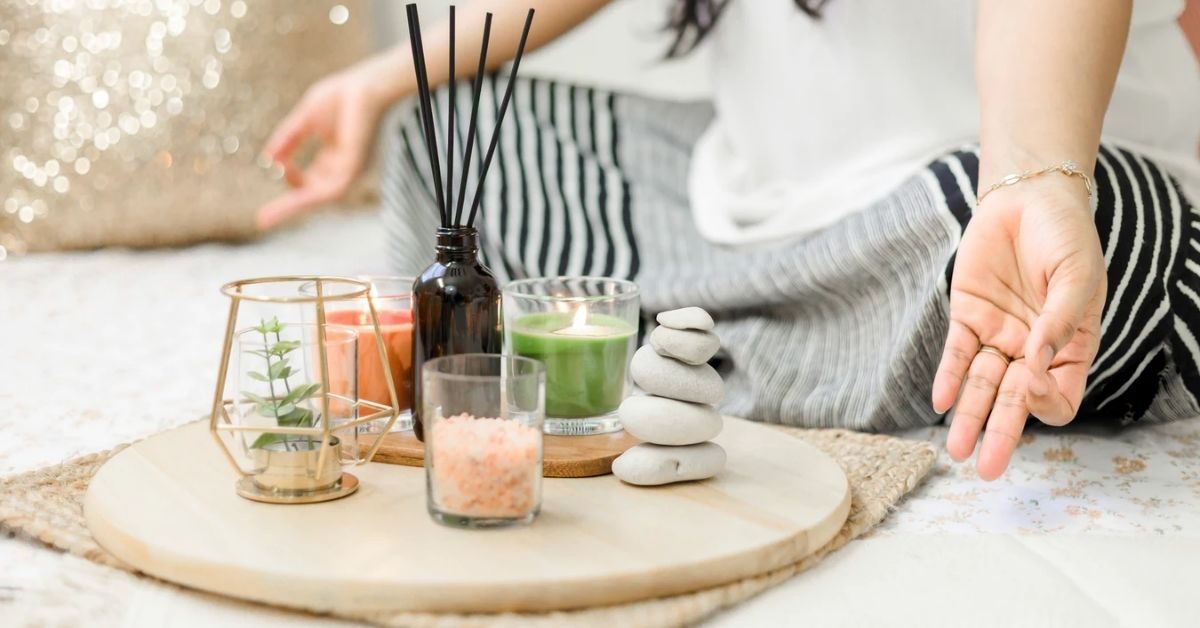
To relax the body, you want a cooler temperature in the room you’re intending to meditate. Keep your bedroom cool with a fan or by closing the shades. Not only will this help you relax, but it will also help you fall asleep quicker as the body temperature lowers at night to help you sleep.
Try using aromatherapy to create a relaxing atmosphere. Lavender and chamomile are the ideal essential oils to relax the mind and body to create a tranquil setting in the room.
Try to remove clutter too. A tidy room makes for a tidy mind. If there’s lots of mess in the room you’re trying to meditate in, you’ll feel overwhelmed.
5. Start small
When you first start to introduce mindful awareness practice to your daily routine, it can be tempting to try and jump in with both feet, choosing hour-long sessions to get you going. Not only is this unsustainable, but you’ll find it difficult to meditate for this long to start with.
Like any practice, you need to start small and build upon the skill.
It’s best to start with five- to ten-minute sessions, then gradually increase from there. Try to work up to 20-30 minutes per day.
Mindfulness and Meditation Tools and Apps
If you need a hand getting in the zone, here are a few tools and apps to help you improve your sleep meditation practice.
1. MindPlace Kasina DeepVision Bundle
Based on the ancient Kasina technique for meditation, the MindPlace Kasina DeepVision Bundle is a meditation tool that provides you with audio and visual guided meditations.
The set includes an MP3 player with 49 built-in meditation sessions that include soothing sounds and binaural beats. You can also add your own guided meditations and soothing music to the console. You also get a pair of DeepVision Ganzframes which have 255 different color shades that provide calming visuals to match your audio sessions to help you focus your mind and release yourself from the outside world.
As one customer, Oscar B, puts it:
“It’s a great product and instantly puts me in an ‘isolated’ world where I can finally practice meditation after a lifetime of putting it off.”
Click here to purchase your Kasina DeepVision Bundle now.
2. Joybija meditation classes
If you’ve always wanted to try meditation but would like a helping hand to get started, try one of Joybija’s meditation courses.
Offering classes for all ability levels, this is the ideal helping hand for those who want to get started as well as those who want to further their practice.
There’s even a free six-lesson course to get you started.
Click here to try Joybija’s meditation classes today.
3. Sleepphones
If you want to start practicing guided meditations to help you relax before bed, Sleepphones are the perfect tool for you.
They’re highly comfortable headphones that allow you to play your guided meditations without disturbing those around you. Unlike regular headphones, sleepphones are positioned on an ultra-soft headband rather so they don’t dig into your ears as you try to lay down — ideal for side sleepers.
Click here to grab your Sleepphones now.
4. YouTube Sleep Meditation Videos
Looking for a free guided meditation to help you kickstart your sleep meditation practice?
Try a YouTube sleep meditation video from this list. We’ve compiled some of the top sleep meditation videos to help those of all abilities drift off peacefully.
You’ll find that they’re all different lengths, starting from a few minutes ranging to a couple of hours.
5. Calm
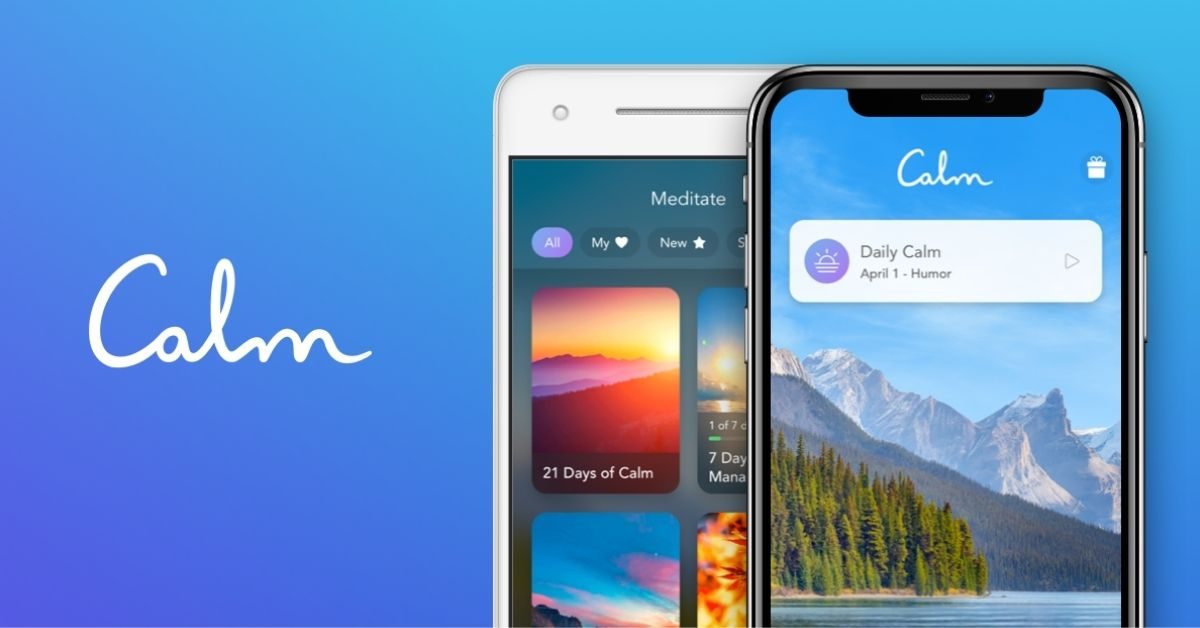
The Calm app is a meditation app recommended by a variety of professionals. There’s a wealth of sessions, sounds, and stories available to you for any occasion, with plenty of meditation sessions to help aid sleep.
While it’s free to download, you’ll need to pay for a membership.
6. Headspace

Headspace is a very simple and highly-revered meditation app created by meditation and mindfulness expert, Andy Puddicombe.
Based on extensive scientific research carried out by the company, Headspace offers a wide variety of sleep meditations to calm the mind and body.
What is unique about this meditation app is that it is designed for both kids and adults.
Headspace offers basic sessions for free with in-depth meditations requiring a membership.
Summing Up
There’s no excuse for poor sleep with so many meditation resources on hand. By learning how to meditate for better sleep, you can address your sleep issues, combat insomnia, and enjoy restful sleep every night.
There are lots of different types of meditations available so try a few different ones to see which suits you best.
If you need help getting started, don’t be afraid to take a few classes to get the technique down. Try one of Joybija’s meditation courses to kick off your new sleep meditation routine.

Welcome to Snoozerville! I’m Dr. Alex Hartley, your guide to the world of restful sleep. With a Ph.D. in Sleep Science and years of experience as a sleep therapist, I’ve dedicated my life to understanding and improving sleep quality. My passion lies in uncovering the mysteries of sleep and sharing practical, science-backed advice to help you achieve the best rest possible. Beyond my academic pursuits, I’m an advocate for mindfulness and relaxation techniques, which I incorporate into my daily routine. At Snoozerville, I aim to transform your nights, combining the latest research with easy-to-implement tips. Whether you’re a chronic insomniac or just looking to improve your sleep hygiene, join me on this journey towards peaceful, rejuvenating sleep.

